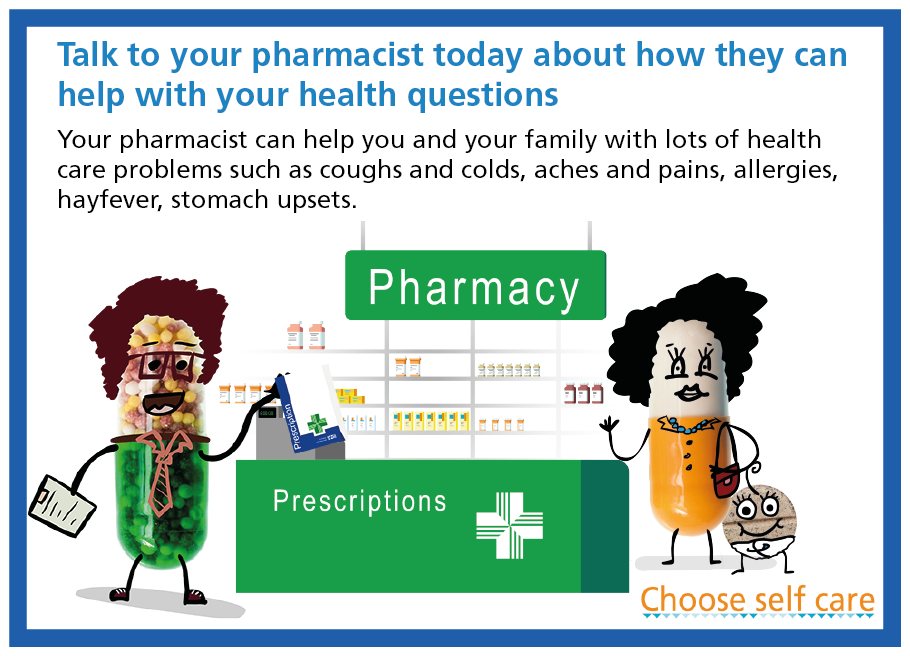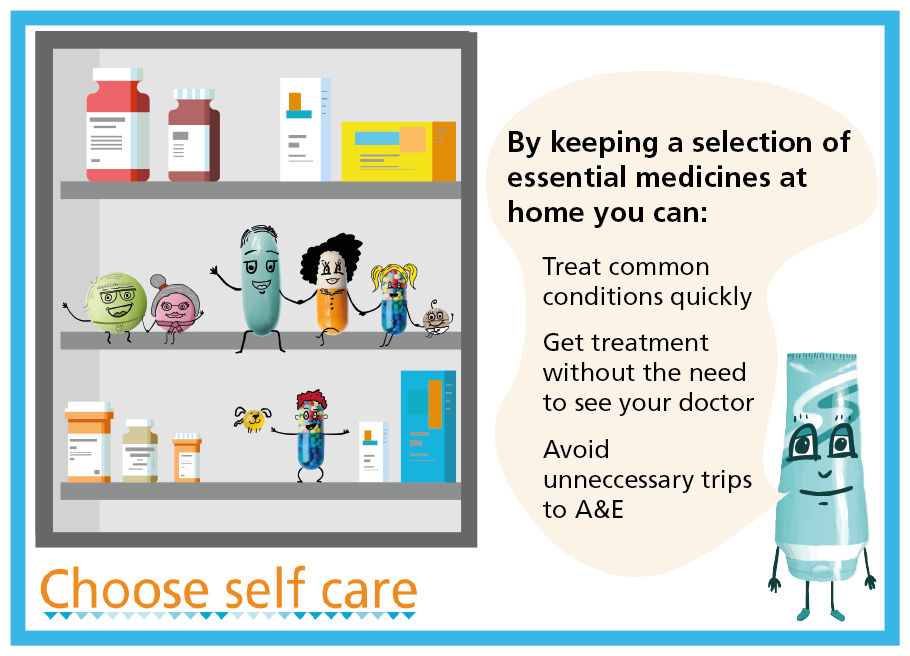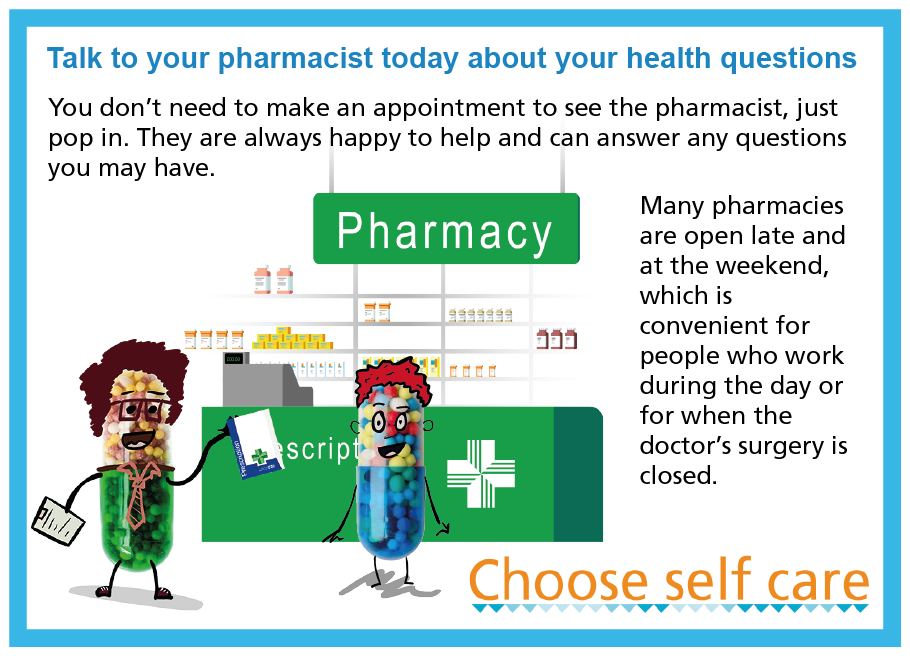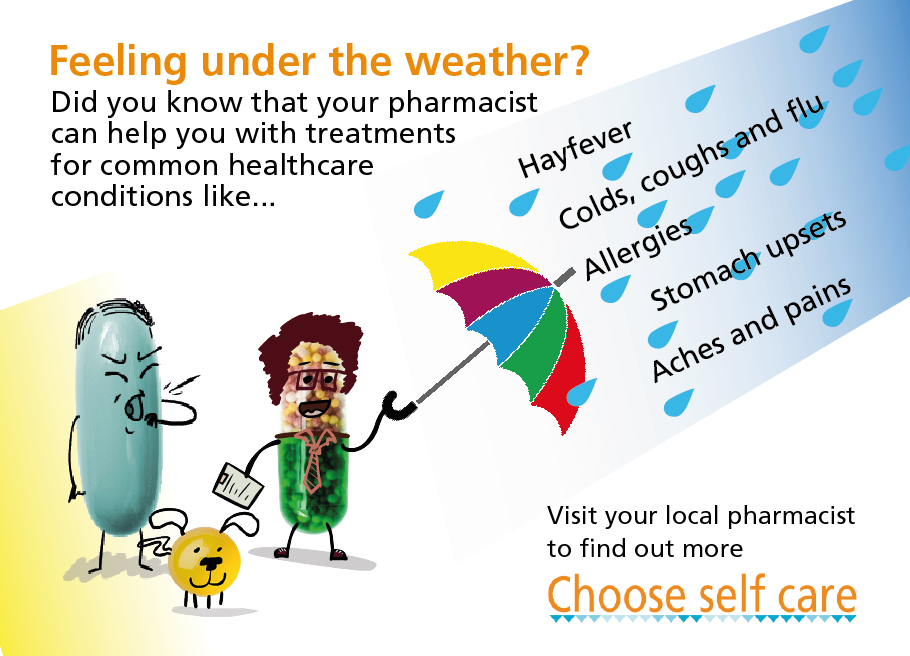Self-care is all about staying fit and healthy, knowing when you can take care of yourself, when a pharmacist can assist, and when it’s time to seek advice from your GP or another healthcare professional. If you have a long-term condition, self-care involves understanding that condition and how to manage it.
The NHS provides numerous guides and support for various common illnesses and injuries, which you can see here.
By keeping some useful medicines at home, you can quickly address common health conditions. The medicines you might consider having at home include:
- A painkiller to help with minor issues related to pain, discomfort, and fever.
- Medications for indigestion, oral rehydration salts, and treatments for constipation and diarrhea.
- Remedies for seasonal conditions like colds and hay fever.
- Sunblock and after-sun products.
- Basic first-aid items are also handy.
- If you have children, make sure to have products suitable for them.
Remember that you do not need a prescription from a GP to buy over the counter medicines. Consult your pharmacist for guidance on which medicines to keep at home, how to store them safely, and how to use your medications. Find out more about what medicines and treatments you can buy without seeing your GP at your local pharmacy or supermarket. More information on creating a safe medicines cabinet can be found below.
Maintaining a well-balanced, healthy diet means that most people won’t need to take vitamin supplements or probiotics. If you wish to take these products to prevent deficiencies, you can buy them from a pharmacy, supermarket, or online. NHS Better Health offers advice on diet, exercise, reducing smoking and alcohol consumption, and taking care of your mental health.
You can also reach out to your local NHS Community Pharmacy team for advice on minor, short-term conditions.
Click here for frequently asked questions relating to medicines.
How can you assemble a safe medicines cabinet?
There are everyday medicines you can stock up on and keep within reach at home. Remember to store these medicines in a secure place, out of the sight and reach of children.
If you have children in your household, ensure you have products suitable for them. Consult your NHS community pharmacist for advice on having age-appropriate medicines.
When giving medicines to children, be careful about the dosage. For liquid medicines, measure the dose carefully and use an oral syringe if the dose is less than 5ml. You can obtain an oral syringe from your pharmacy. It’s important to note that children under the age of 16 should not take aspirin or aspirin-based medicines.




